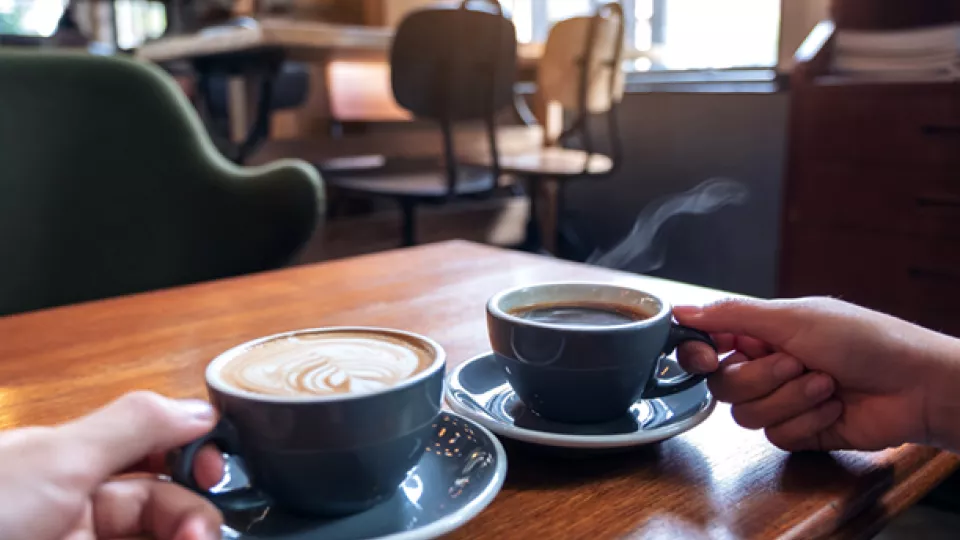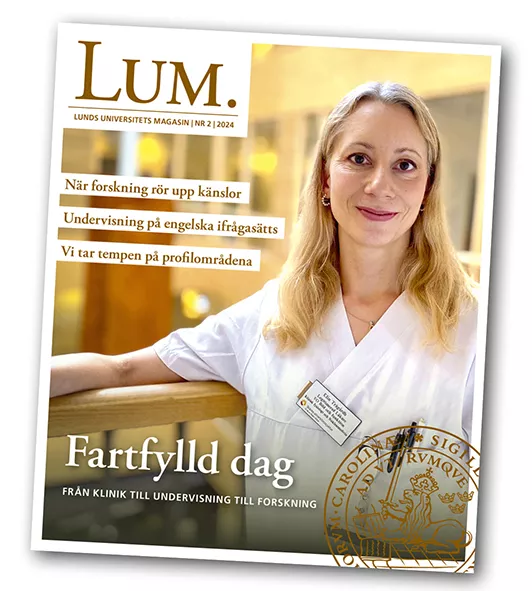She says we have a certain amount of energy that either drains or fills during the working day.
"I would like to see my job and free time in the same way, you do things you like doing with the people you like spending time with", says Lina Ejlertsson, doctoral student in family and community medicine."
We often hear that we should rest in the evenings or on the weekends; however Lina Ejlertsson says we can recover during the working day.
"In my research I explore the possibility of going home with more energy", she says, adding that one of their studies has shown this to be possible.
Although she has studied what helps staff in healthcare to prevent occupational burnout, it is reasonable to believe the results are transferable to other professions. In 2013–2014, a project took place on salutogenic work factors, that is, what makes workers feel good – despite the pressures and stress at work. All 26 healthcare centres in northeast Skåne took part. The main result of this study was that the absolute most important factor for self-rated health was recovery. Not everyone felt worn out after work, despite the fact that the healthcare centres were often short-staffed.
"It is important to add that there are significant organisational problems in healthcare that drain the staff and cannot be fixed by 'taking a deep breath'".
In 2015, the current project started with a qualitative study on what recovery at work is. Three factors became clear: variety, belonging, and a feeling of manageability.
"It is about combining tasks that demand a lot of concentration with more monotonous tasks. An example, for myself, would be data entry of survey statistics."
Variety is not only required when it comes to work tasks, but also in work tempo and location.
The other factor that was crucial for recovery was belonging. Some healthcare centres needed to work 100 per cent on the sense of belonging, something that was often related to finding common goals to work toward. Teambuilding can also be good initially if people do not know each other outside of work, says Lina Ejlertsson.
"To laugh, small talk, and encourage each other at work was shown to be important in how the staff recovered. Negative energy, on the other hand, is draining."
The third factor related to the sense of control, manageability. One of the most important things was to have time to complete a task before starting on the next one. It was also important that management listens and that staff are able to have an impact on their work situation.
The next step for the researchers was to carry out tailored interventions at six selected healthcare centres. Together with the healthcare staff, the researchers introduced different kinds of increased recovery – based on variety, belonging and manageability – to the activities. The data will now be analysed and a number of focus group interviews carried out.
"It will be very exciting to see how the interventions have affected the staff members' experiences of recovery and wellbeing", say Lina Ejlertsson.
JENNY LOFTRUP
FOOTNOTE. The project is titled Återhämtning i arbetet – ett interventionsprojekt för bättre hälsa bland medarbetare i primärvården (Recovery at work – an intervention project to improve health among staff in primary healthcare). The previous project was titled Salutogena arbetsfaktorer i skånsk primärvård (Salutogenic work factors in primary healthcare in Skåne).




